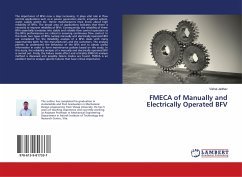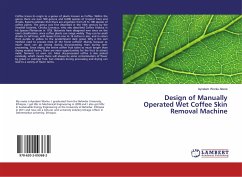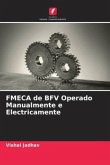The importance of BFVs now a days increasing. It plays vital role in flow control applications such as in power generation plants, irrigation system, water supply system etc. Hence manufacturers must know about high reliability of BFVs. The broad area of applications indicates that there is necessity to improve reliability of BFVs. Consequently, the reliability of these BFVs essentially translates into stable and reliable flow control operation as the BFVs performances are critical in ensuring continuous flow control. In this book two types of BFVs namely manually and electrically operated BFV are considered for the Reliability analysis of a BFVs deals with many opportunities both for the manufacturers and the customers. The analysis permits to understand the behaviour of the BFVs and to obtain useful information in order to form maintenance policies based on the study. In this study, the reliability analysis of a manually and electrically operated BFV is carried out. Firstly, the Failure mode effect and criticality (FMECA) analysis method is discussed and possible failure modes are found. FMECA is an excellent tool to analyze specific failures that have critical importance.








